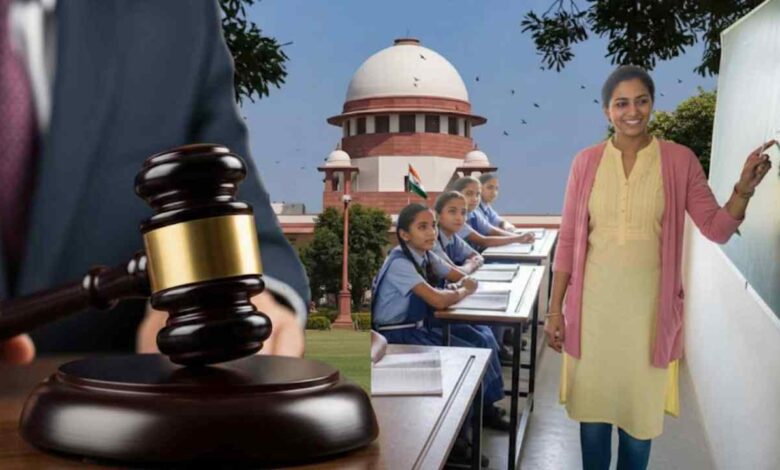TET for Teachers: ‘Pass TET or Lose Your Job’ – Find Out Which Teachers Are Affected by the Ruling

TET for Teachers: In a recent landmark judgment, the Supreme Court of India has stated that all primary and upper primary teachers appointed before 2010 must now pass the Teacher Eligibility Test or TET. This verdict is based on the Right to Education Act (RTE Act) and signals a major change in the country’s education system. Any teacher who fails to comply with this directive within the next two years could even have their employment terminated. Let’s delve into the details of this ruling.
Who will be affected by this verdict?
This directive from the Supreme Court will directly impact the careers of millions of teachers across the country. Specifically, the following teachers will fall under the purview of this judgment:
- Teachers appointed before 2010: All teachers who were appointed before the RTE Act came into force, i.e., before 2010, will be required to pass the TET examination.
- Primary and Upper Primary Levels: All teachers in government and government-aided schools from Class 1 to Class 8, i.e., at the primary and upper primary levels, will be covered.
- Exemption: However, some relaxation has been given to teachers with less than five years of service remaining until retirement. They will not be dismissed from their jobs even if they do not pass the TET, but they will not receive any promotions or other benefits.
Legal Basis and Detailed Information of the Ruling
This ruling is primarily based on the Right to Education Act of 2009, which is applicable throughout India. The National Council for Teacher Education (NCTE) had established minimum eligibility criteria for teachers on August 25, 2010. According to that guideline, passing the TET is mandatory for teaching.
Some important points to remember:
- Teachers who have already passed the TET do not need to retake the exam, as the validity of the TET certificate is now for a lifetime.
- The TET exams for primary and upper primary levels are completely different. This means a primary teacher must pass the Primary TET, and an upper primary teacher must pass the Upper Primary TET. One cannot be considered a substitute for the other.
- In the case of West Bengal, the state’s own TET examination is given recognition. The Central Teacher Eligibility Test or CTET is generally not acceptable for state government jobs, so teachers in the state must pass the TET conducted by the state government.
What is the next step for West Bengal?
Although this Supreme Court ruling was initially given in the context of a case from Maharashtra, it is highly likely to have a nationwide impact. For this ruling to be effective across the country, the central government’s NCTE must first issue a notification on its official website. Following that, each state’s education department will have to issue separate notifications to implement it. Therefore, while this rule may not be immediately effective in West Bengal, it is almost certain that it will be applicable in the future. Teachers in the state need to start preparing mentally for this change from now on.

